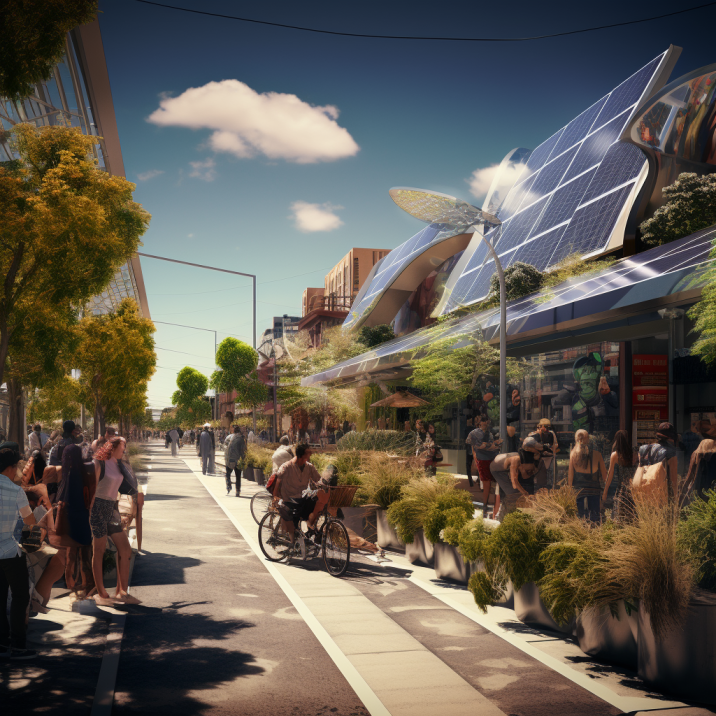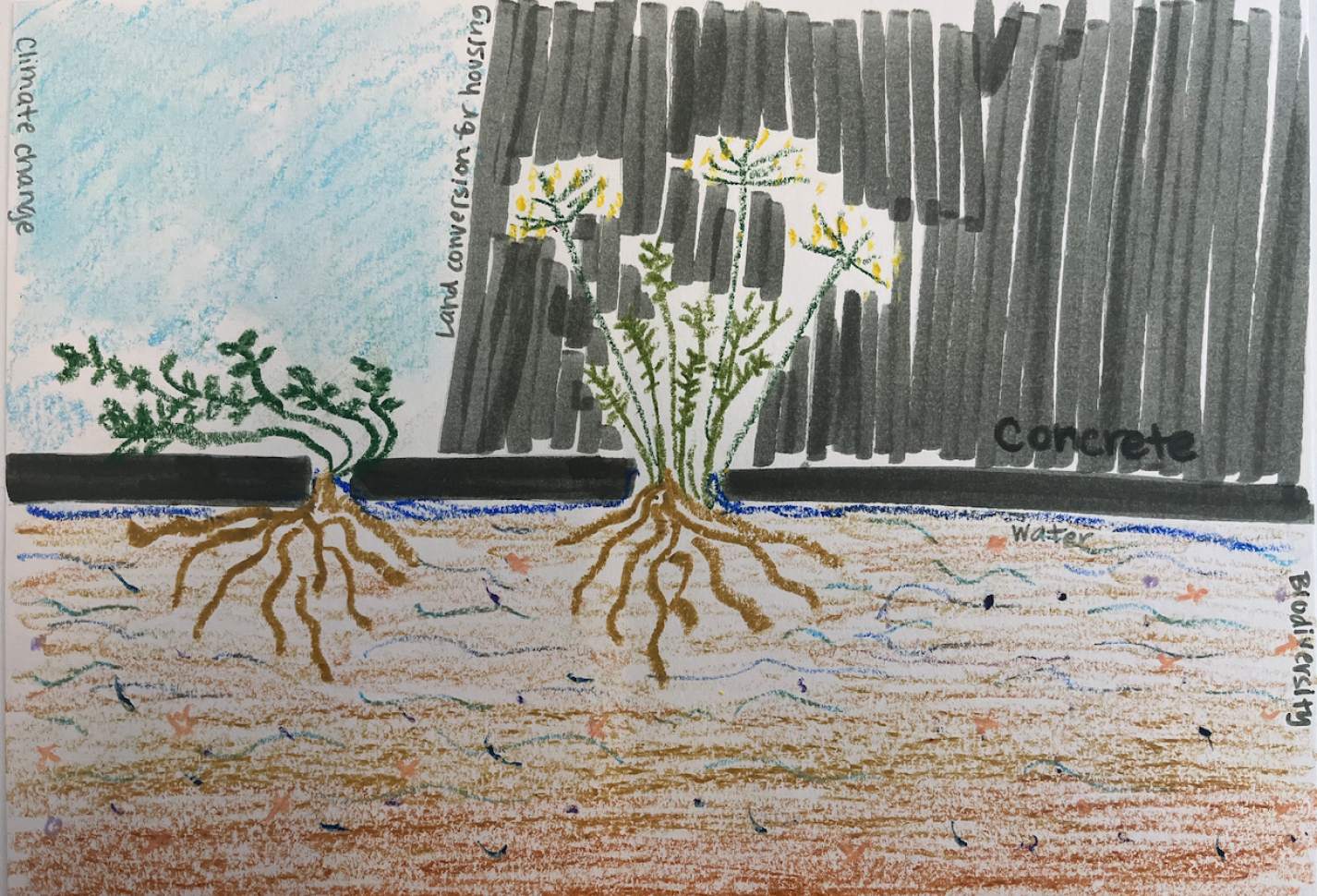The Melbourne Doughnut
Explore how well Melbourne is tracking as a place that supports people and planet to thrive.
Climate Change
When greenhouse gases such as carbon dioxide, methane and nitrous oxide are released into the air, they enter the atmosphere and amplify Earth’s natural greenhouse effect, trapping more heat within the atmosphere. This results in global heating. Its effects include rising temperatures, more frequent droughts, floods and storms, and sea level rise. How we live, work and play in Melbourne (including the goods and services we produce and consume) has an impact on the global climate.
Contributors to Climate Change
Climate Change is influenced by:
- A build-up of greenhouse gases in the atmosphere
- Changes to the reflectivity of the Earth’s surface (such as greater areas of dark blue ocean, which absorbs heat, and reduced areas of snow and ice coverage, which reflect heat)
- Changes in aerosol levels in the atmosphere (small particles of dust and chemicals) and associated changes to cloud cover Contributors to Climate Change include:
- Burning fossil fuels for electricity generation, fuel combustion and transport
- Emission of greenhouse gases such as methane from agriculture and waste
- Production of chemicals and cement
Planetary Quotas for Greater Melbourne
Each dimension of the Ecological Ceiling is measured using per-capita Planetary Quotas for Greater Melbourne.
Carbon Emissions
Carbon dioxide emissions are trapping heat in the atmosphere
What we're measuring
Net emissions of carbon dioxide
- 2030 Target
- Under -6.82m tonnes CO2 equivalent per year
- Now
- 32.91m tonnes CO2 equivalent per year
Non-CO2 Greenhouse Gas Emissions
Potent gases other than carbon dioxide are contributing to the greenhouse effect and global warming
What we're measuring
Net emissions of non-carbon dioxide greenhouse gases (such as methane, nitrous oxide and fluorinated gases)
- 2030 Target
- Under 2.84m tonnes CO2 equivalent per year
- Now
- 28.04m tonnes CO2 equivalent per year
Placing Climate Change in the system
Global to local connections
Impacts of human-induced Climate Change are already evident not only internationally, but also here in Australia. For example, we continue to break records for average seasonal and annual temperatures, and are experiencing extreme weather events with greater frequency and severity. Reducing Greater Melbourne's contribution to climate change and its effects globally and locally can come from:
- Accelerating our transition to renewable energy sources
- Shifting to less energy-intensive activities, such as increasing active transport over car-based travel
- Storing more carbon through enhanced greening
Stories
Learn more
How was this dimension developed?
The Climate Change dimension of the Greater Melbourne City Portrait has been developed in collaboration with Open Corridor with research support from the University of Melbourne. The assessment of Melbourne's environmental footprint applies a Planetary Accounting approach. A detailed description of the City Portrait methodology is outlined in the About section of the website.
Where can I access the data?
Data for Climate Change, along with the other Ecological Ceiling dimensions are available in the Ecological Ceiling Dataset.
For Social Foundation dimensions, see the Social Foundations Dataset.
Where can I find more information on Climate Change in a regenerative Melbourne?
The City Portrait is informed by extensive research and resources on Doughnut Economics and related frameworks, as well as sector-specific research associated with each dimension. More detailed research that has informed the Climate Change dimension is available to explore via Altiorem's library.
How can I get involved?
To get involved with ongoing development of the City Portrait or learn more about Regen Melbourne, email alison@regen.melbourne




